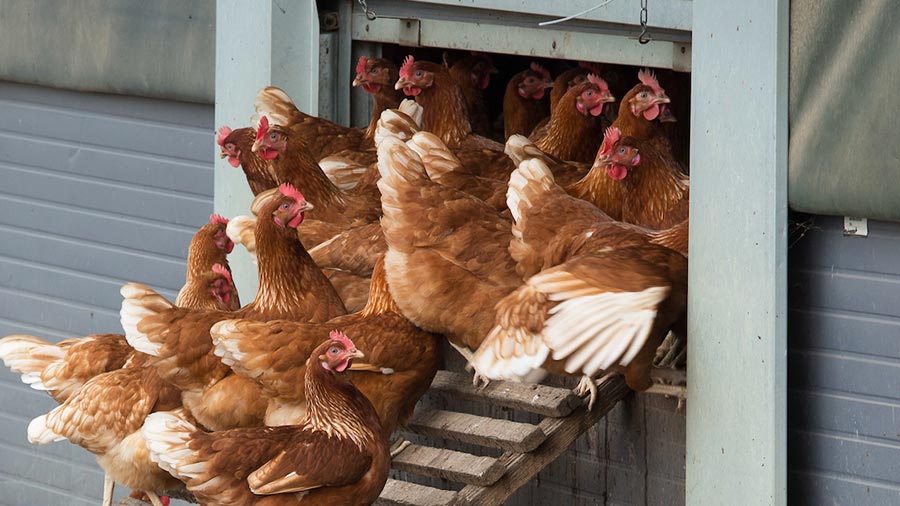Vigilance call as Defra sets date to lift poultry housing order
 © Tim Scrivener
© Tim Scrivener Free-range poultry flocks will be allowed outdoors from 18 April after Defra announced plans to relax the housing order in England and Wales.
The order was put in place on 7 November last year to help prevent the spread of avian influenza.
At the time, the virus was spreading rapidly through flocks with peak weeks seeing a new case every day as Britain began its worst-ever outbreak.
See also: Q&A: Guidance on avian flu with England’s chief vet
Since last autumn 175 premises have succumbed and millions of hens and pullets have died or been culled.
But in recent weeks the number of cases has slowed to fewer than one a week, and the Animal Plant and Health Agency (Apha) reduced its risk level status from high to medium.
Veterinary officials now deem the risk to be at a low enough level for birds to be allowed outdoors once more.
Maintain vigilance
The British Free Range Egg Producers Association (Bfrepa) welcomed the easing of restrictions, but urged all birdkeepers to remain vigilant and maintain high biosecurity standards.
Bfrepa chief executive Robert Gooch said: “Free-range egg producers will be relieved to see their hens outside again.
“While on the range, hens like to scratch, dust bathe and forage for additional food, displaying the natural behaviours that consumers associated with free-range and organic egg production.
“However, it is vital that all poultry keepers – regardless of bird numbers – continue to treat the situation as high risk, taking all necessary precautions to limit the continued transmission of the virus now that hens are ranging again.”
Mr Gooch stressed that the message was particularly important to small flock and backyard keepers who might not be aware that practising good biosecurity principles can help protect nearby farms.
UK chief veterinary officer Christine Middlemiss added: “While the lifting of the mandatory housing measures will be welcome news to birdkeepers, scrupulous biosecurity remains the most critical form of defence to help keep your birds safe.
“It is thanks to the hard work of all birdkeepers and vets who have played their part in keeping flocks safe this winter that we are in a position to take this action.
“However, the unprecedented nature of this outbreak has proven it’s more important than ever for birdkeepers to remain vigilant for signs of disease and maintain stringent standards of biosecurity.”
